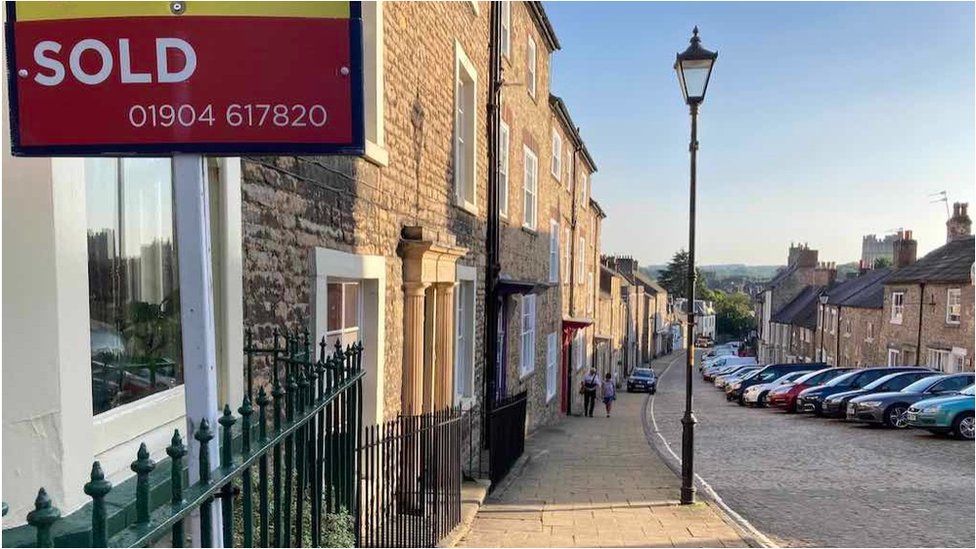
Home buyers have benefitted from lower or no stamp duty, a tax paid on property purchases, in some parts of the UK, for more than a year.
The tax holidays on stamp duty or its equivalent taxes, were introduced by ministers to stimulate the housing market as the country emerged from the first national Covid lockdown last summer.
Since then, the market has been buoyant – immune to the economic shock created by the pandemic. Sales reached record levels, as did house prices. Official data show the average cost of a residential property in the UK rose by 8% in a year. Some areas saw increases of more than 20%.
Stamp duty rates in England and Northern Ireland have now returned to their pre-pandemic levels. Similar taxes in Scotland and Wales are already back to normal.
Yet, debate continues over whether the tax break policy was a success, or unnecessary.
Two experts, representing both sides of the argument, have shared their views.
‘The stamp duty holiday should continue’
Mark Bogard, chief executive of The Family Building Society, says that the pandemic meant ministers could use stamp duty holidays to change problems with the UK housing stock.
“Stamp duty is a very significant tax, but it is extremely easy to avoid by just not moving home,” he says.
People have generally been living in the same home for longer than in the past. That is especially true of potential ‘downsizers’, who have been put off moving because they would normally have to pay stamp duty, he says.

He describes the stamp duty holiday as “very elegantly crafted”, in that it was centred on people buying a home, and that created its own economic stimulus.
People spend significant amounts of money sprucing-up a property before they sell it, money is then spent during the buying and selling process, and then buyers spend again to make changes when they move in, he says.
The stamp duty holiday led to many more sales and that extra spending benefitted all the accompanying sectors, such as home improvements, valuations and removals. It also helped the Treasury to bring in extra tax receipts from VAT, for example.
He also argues that, with stamp duty in England and Northern Ireland not paid on purchases of up to £500,000, in the first phase of the stamp duty holiday, it benefitted the less wealthy areas of the country. That, he says, helped with the government’s levelling-up agenda.
“I can’t see any argument for not continuing with [the stamp duty holiday],” he says.
‘It just made a hot market even hotter’
Lindsay Judge is research director for the Resolution Foundation – a think tank focusing on people on lower incomes.
She says it was “completely understandable” that the chancellor decided to offer a stamp duty holiday to stimulate the housing market, which is vital to the wider economy,
However, she says that the chancellor’s decision in March to extend the tax break in England and Northern Ireland was unnecessary.
 IMAGE SOURCE,LINDSAY JUDGE
IMAGE SOURCE,LINDSAY JUDGE“The government didn’t turn off the tap when it became apparent that it inflated house prices,” she says.
“The reason why it was it was largely unnecessary was because there have been other stimulus effects in the housing market.”
She says that many people who continued their jobs unaffected by the pandemic built-up large amounts of savings, which they could then use for house moves.
The Covid crisis also changed people’s preferences, increasing demand for larger houses with a garden in more leafy areas. As a result, potential buyers brought forward house moves they had planned for the future.
The extra demand, unmatched by supply, meant house prices rose sharply. She points out that house prices continued to go up in Scotland, even after their tax breaks for residential Land and Buildings Transaction Tax stopped at the end of March.
This has made the prospect of buying a home even more distant for prospective first-time buyers, she adds.
By offering all buyers a stamp duty holiday, first-time buyers lost the rare advantage they had previously. Their own stamp duty break pre-pandemic had given them some bargaining power in the market.
She says that the stamp duty holiday, which the Office for Budget Responsibility calculated would cost the taxpayer £4.7bn in two years, simply made “a hot market even hotter”.


